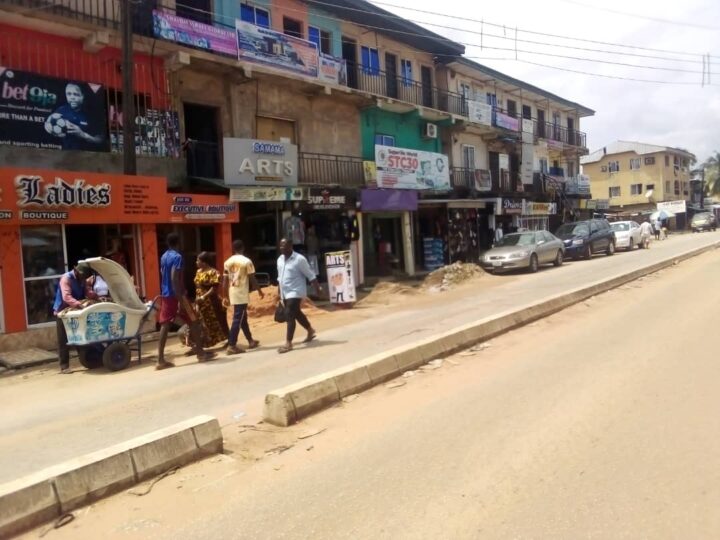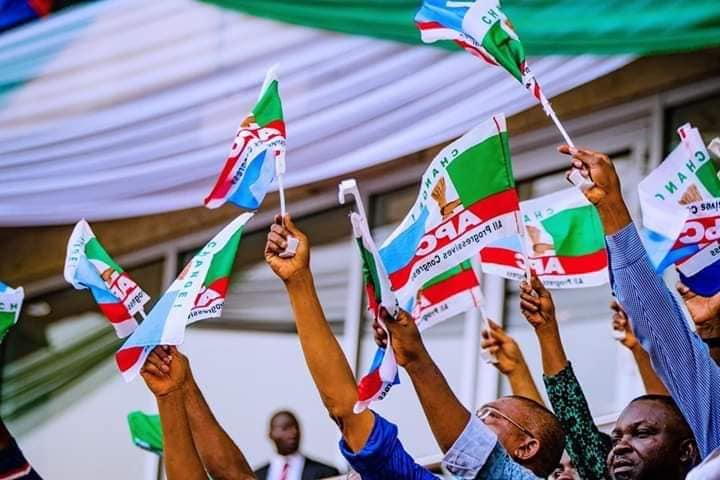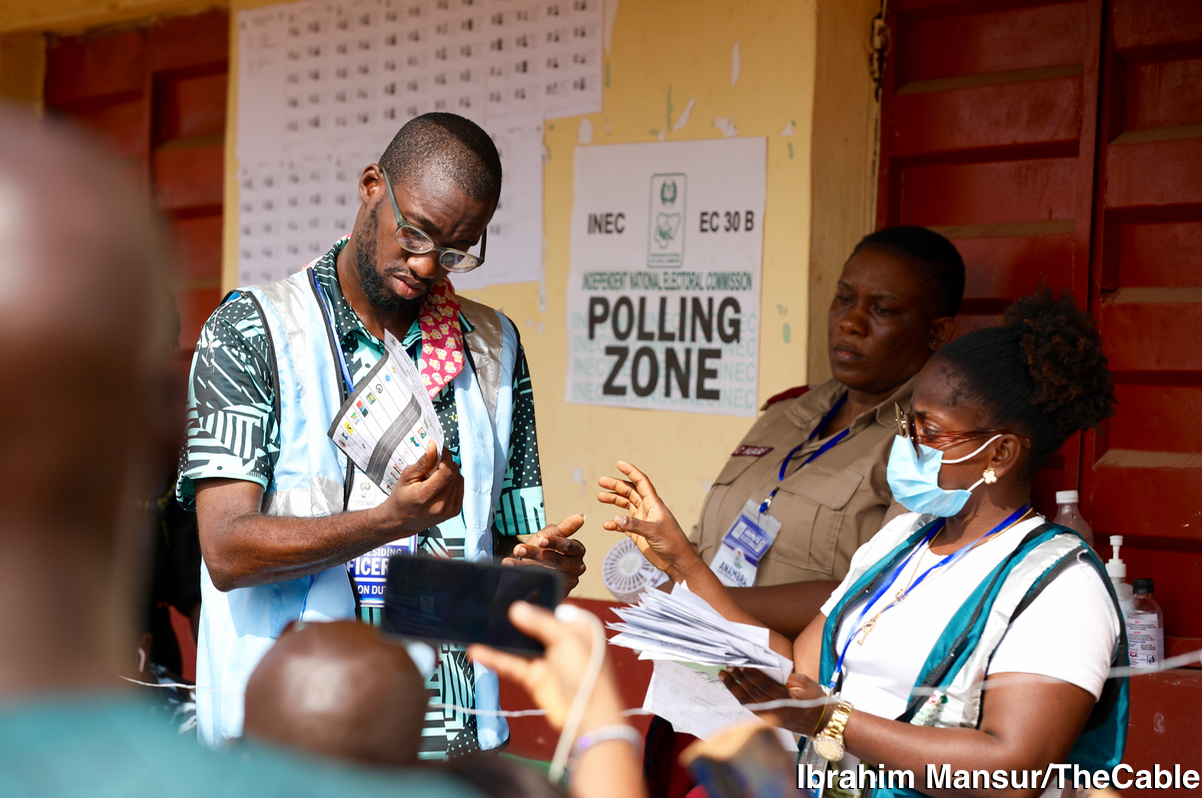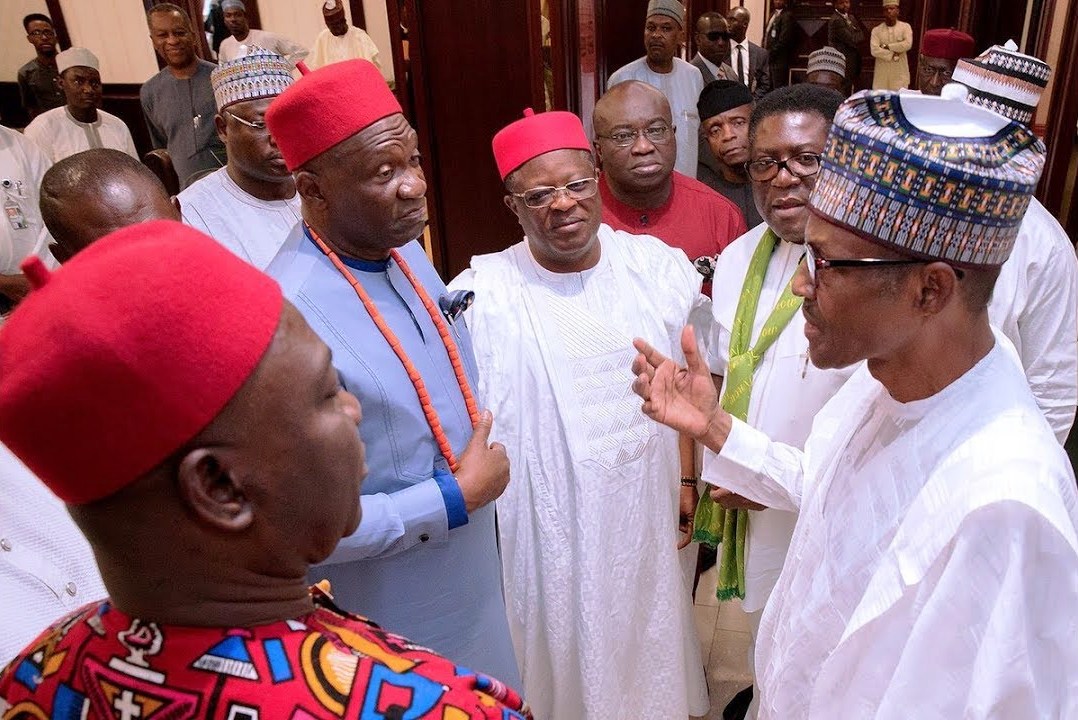Iweka Road comes to the consciousness of most Nigerians, following the emergence of the Nigerian movie industry, popularly known as Nollywood, as one of the three major home movie industries in the world, in the early 90s. After Hollywood and Bollywood, comes Nollywood in terms of the volume of movies being churned out annually. From the “racy pacy” style delivery by voice-over artists in home movies’ advertisements, comes a series of addresses, like; “Ebinpejo Lane, Idumota Lagos” to “Iweka Road, Onitsha”, and the rhythmic, “Grab your copy now…….”, especially, the English genre, to the comic relief most of the actors, like Sam Loco Efe, Nkem Owoh, among other thespians dish out on a regular basis, Nollywood has become a part and parcel of our family lives in Nigeria. So, Iweka Road (Onitsha) needs little or no introduction to regular watchers of Naija-made home movies, like us or those who have not even gone anywhere near the River Niger Bridge at Asaba/Onitsha.
I happened to be involved in an expedition, with a group of journalists last week to the industrial city of Nnewi, in Anambra state. That happened to be my first trip across the “Niger” since the current wave of agitation by Nnamdi Kanu-led Indigenous People of Biafra (IPOB) began. My last visit was to Aba in July 2016 on a business trip. So, as our vehicle navigated the Benin-Asaba-Onitsha expressway which is an extension of the Lagos-Benin expressway, through the ever-busy Upper Iweka Road in Onitsha, the commercial capital of the southeast; on the faces of warm, innocent hardworking, Igbo people, I saw once again, the raw enterprising nature of an average Nigerian who believes in “eating out of his proverbial sweat”, as exemplified by the Igbo man.
As I looked into the eyes of the young, and middle-aged men and women, who were touting different merchandise; from clothes to other household items they were hawking, I began to imagine IPOB’s sit-at-home” order forcefully enforced by the secessionist agitators every Monday. I began to ponder, what it would feel like to deny these people the opportunity to earn their livelihood in a country where the social safety net is non-existent for the vulnerable. I began to empathise with these petty traders who would have to run for dear lives whenever the sounds of gunshots rent the air, with a very high possibility of getting knocked down by a stray bullet. For those of us (Nigerians) who belong in that category of “daily-hustle, it is a matter of no-work-no-chop”. Our daily meals depend on what we are able to eke out every day from our respective endeavours. As a matter of fact, we are not more than two work-day of inactivity away from starvation. I pity us because we are very plenty.
The sit-at-home designed to be a “passive resistance” (in the words of Mahatma Gandhi) to the authority of the federal government in “Ala Igbo”, more often than not ends up being confrontational between its enforcers and the security agents who have a statutory mandate of guaranteeing the safety of lives and properties of every citizen as he goes about his normal daily legitimate activities. But the Eastern Security Network (ESN), styled the military wing of IPOB, would have none of that as it is “either you obey the order, or you kiss life goodbye”. The order enjoys a measure of success not because the living majority of the victims are in support or members of IPOB, but because the federal government has most often fallen short in demonstrating the adequate capacity to provide security for those who would have dared to call IPOB’s bluff.
Advertisement
That is embarrassing enough for a sitting government to want to swing into action but nothing of such has or is happening at the moment. Make no mistake about it; it takes much more than massive military might to overcome this kind of challenge. The inability to provide safety by the security agencies is not down to lack of capacity but because the agitators employ guerrilla tactics thus making it difficult to be tackled as there is an absolute need to avoid, as much as possible, collateral damage among civilian populations. It, therefore, takes tactful leadership, adept in robust conflict management skills, and the political will to be able to handle it without aggravating the situation and making it worse than it has ever been. After all, it is safer to reconcile an enemy than to conquer him; because conquering him only denies him the weapon and energy to fight while reconciling him will deprive him of his will to fight.
Meanwhile, in view of the damage being done to the economy of the Igbo and by extension and implication, the entire country, it is still beyond my comprehension how IPOB would explain the inherent contradictions in their agitation; hurting badly the very people you claim to be fighting to liberate. I marveled at the intensity of the economic activity going on on that Onitsha-Owerri expressway corridor in spite of the knowledge that by Monday or any day the leader of IPOB, Nnamdi Kanu, makes court appearance if they dare to come out for business, they may as well have to make provisions for their own funeral rites; as the dare-devil secessionists would kill whoever calls their bluff without batting an eyelid. This has in no small measure, affected the economy of the five southeastern states.
A national survey of micro, small, and medium-scale enterprises (MSMEs) conducted by the National Bureau of Statistics (NBS) and the Small and Medium Enterprise Development Agency of Nigeria (SMEDAN) in 2019 described MSMEs as engines for economic transformation and industrialisation. And in this case, the MSMEs are the worst-hit considering the fact that it is the fuselage and the fulcrum of every economy, including that of Nigeria, in which they contribute about half of the gross domestic product (GDP) and are responsible for over 59 million jobs, which represent 86.3 % of the national workforce, one would not be out of order describing it as an act of “economic harakiri” to continue to undermine that sector of the economy. They also contribute 7.64% of the revenue received from export. When one interpolates, it can only be imagined how badly the economy of (Ndi Igbo) one of the most enterprising groups of people in Africa, if not in the world, has been brought to its knees by the inconsiderate group of reactionary revolutionaries.
Advertisement
According to a report in a Nigerian magazine, BusinessDay, a 2019 survey which covered 2013 to 2017 conducted by the National Bureau of Statistics (NBS) and the Small and Medium Enterprise Development Agency of Nigeria (SMEDAN) showed that the total number of MSMEs in Nigeria as of 2017 was 41.5 million, with the micro-enterprises constituting a larger part with 41.4 million businesses, representing 99.8%. Small scale enterprises were a total of 71,000 businesses, constituting 0.17% while medium scale enterprises constituted 0.2% of the total with 73,081 enterprises. Yet this is what is being constantly assaulted by the activities of the proscribed group.
If the above-quoted statistics are anything to go by, as far as the importance of MSMEs to the Nigerian economy is concerned and if that applies to the economy of the five states of Abia, Anambra, Ebonyi, Enugu, and Imo, then it is high time the political entrepreneurs and other critical stakeholders in Igbo land reached out to IPOB to let them realize why they need to stop hurting the very people for whose liberation they claim to be fighting. You cannot claim to be shielding a chick from the hawk and again keep the same inside a pot filled with (very) hot water. The sit-at-home order every Monday and the days Kanu appears in court hurts Ndigbo residing in the southeast region more than it does anyone in the country. It also hurt, occasionally, those (Igbo people) who live and work outside of the region in a way.
It, therefore, stands to reason that those merchants of violence who had hijacked the genuine campaign for justice and equity, as embedded in the Ahiara Declaration (June 1, 1969) for selfish ends, sheath their swords and explore other means of driving home their demands. The innocent faces of law-abiding hustlers on Iweka Road, down to Obosi tell the story of the suffering an average resident of the southeast goes through on any day the order is to be enforced.
Abubakar writes from Ilorin. He can be reached via 08051388285 or [email protected]
Advertisement
Views expressed by contributors are strictly personal and not of TheCable.
Add a comment







